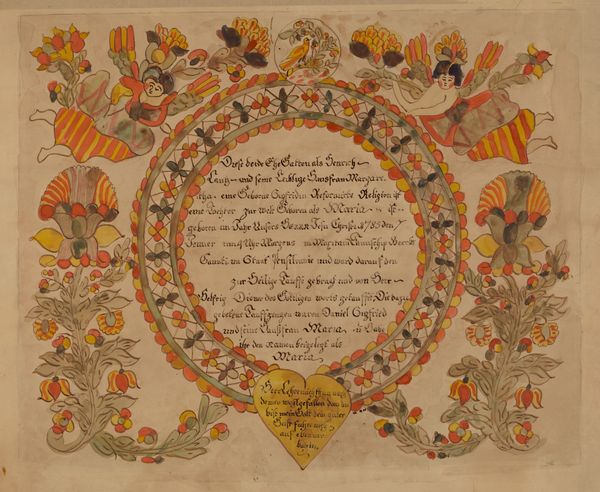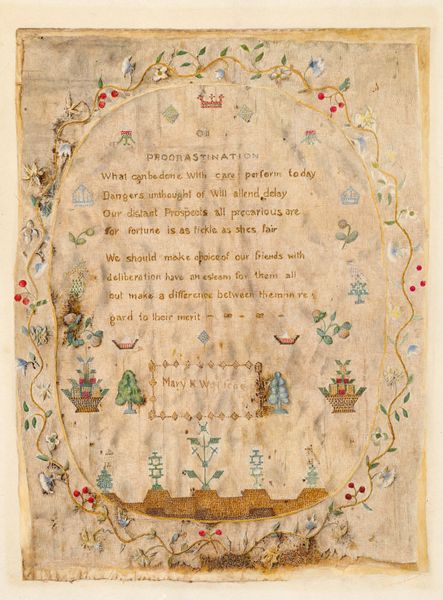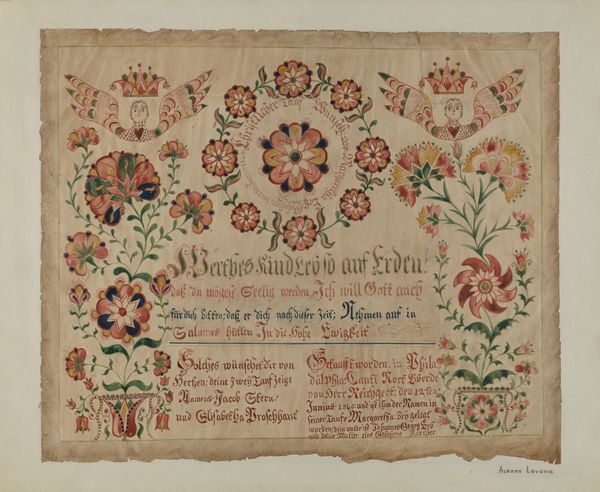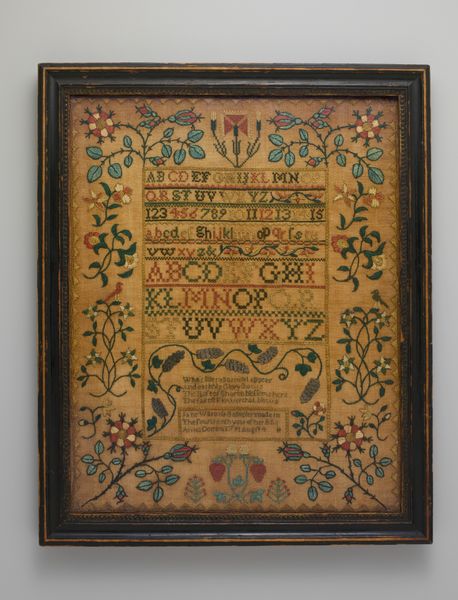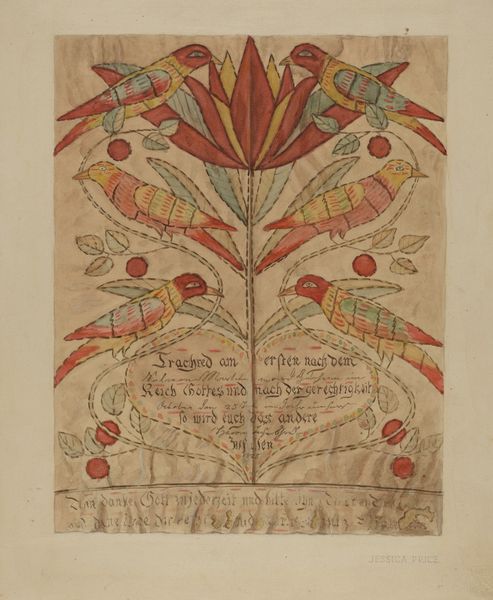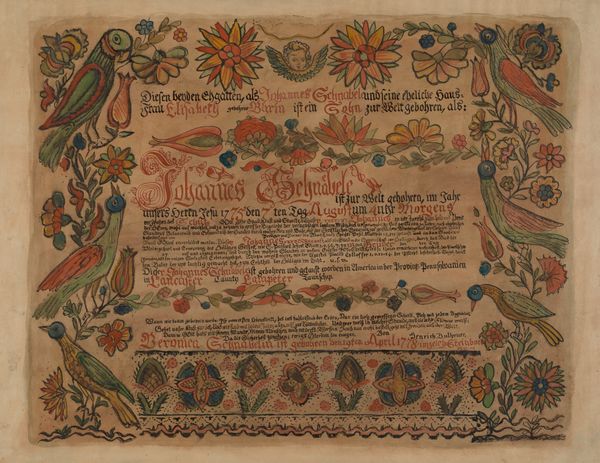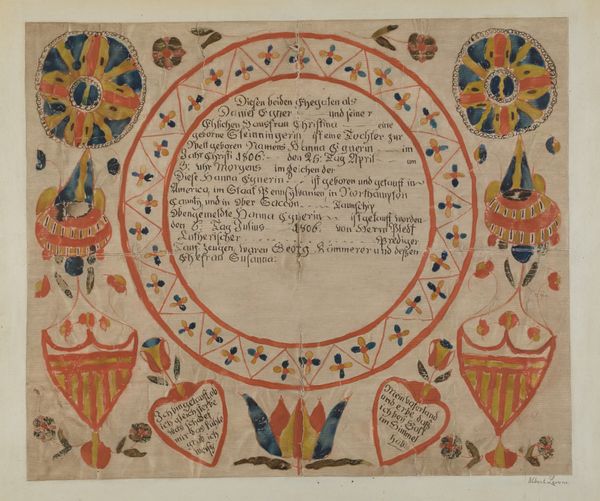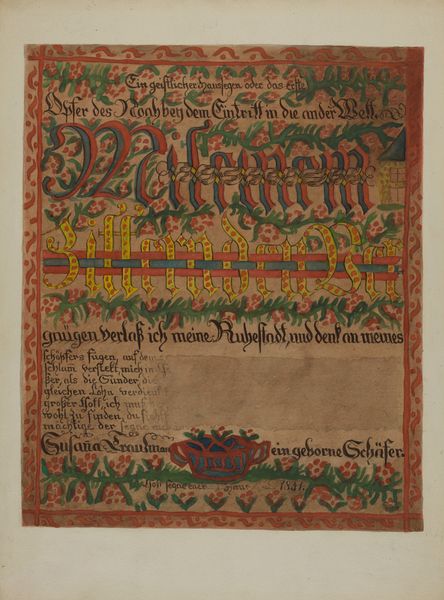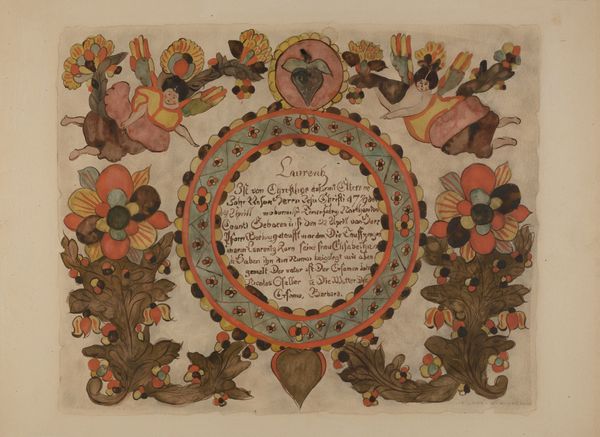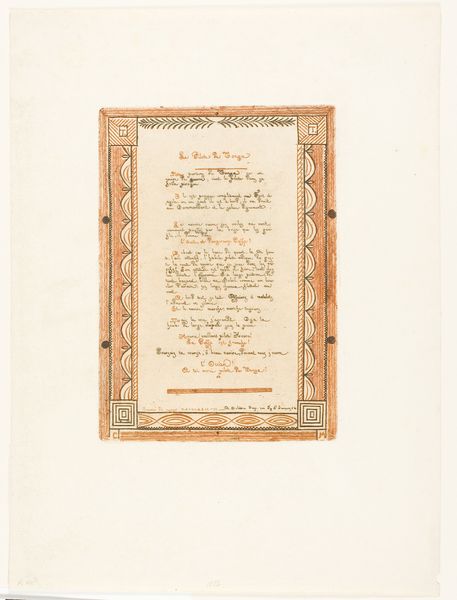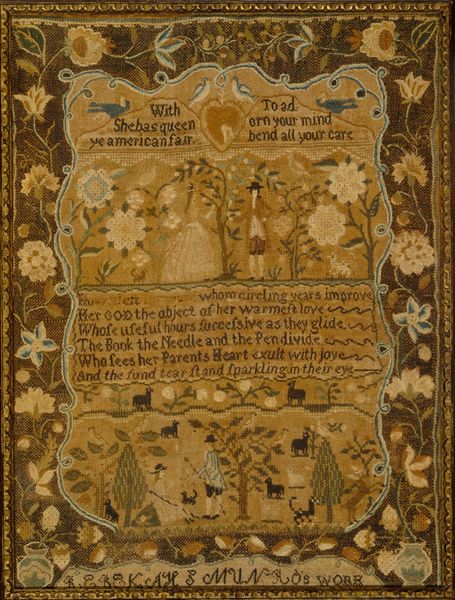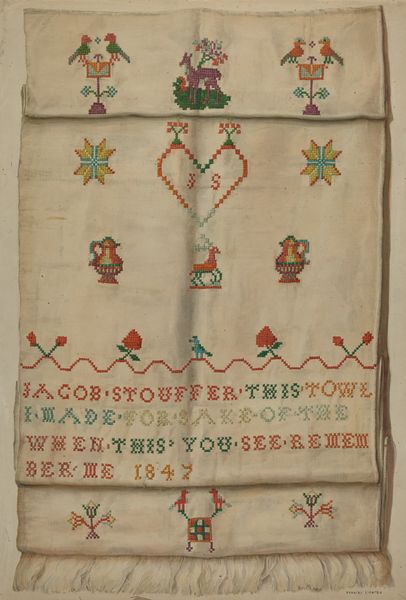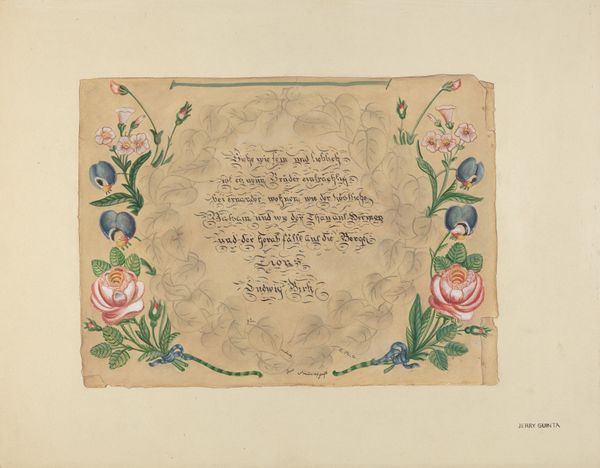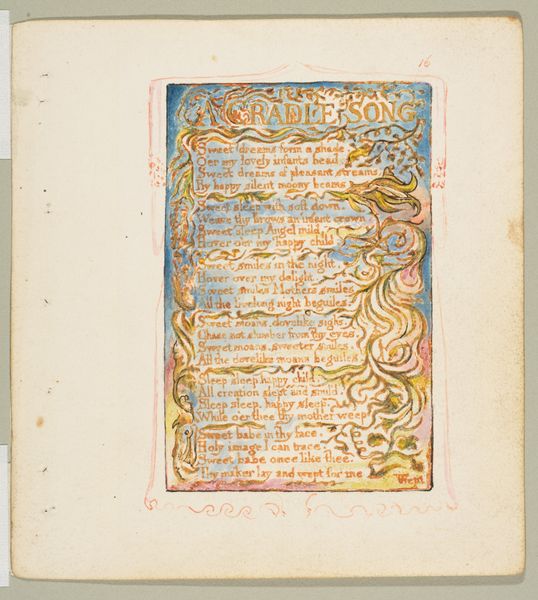
painting, paper, watercolor, ink
#
narrative-art
#
pottery
#
painting
#
paper
#
watercolor
#
ink
#
genre-painting
#
decorative-art
#
miniature
#
watercolor
#
calligraphy
Dimensions: 27 3/8 x 21 1/4 in. (69.53 x 53.98 cm) (sheet)31 1/8 x 25 1/4 in. (79.1 x 64.1 cm) (with added border)
Copyright: Public Domain
This Ketubah, or marriage contract, is an exquisite, illuminated manuscript of unknown origin. Its visual architecture balances text with symbolic imagery. The square Hebrew script on the parchment serves as both legal document and artistic border, framing the central imagery. Pairs of birds and heraldic lions decorate the upper register. These animals flank a stylized vase of vegetation, which is rendered with an emphasis on symmetry. This symmetry gives the piece its formal structure, yet the soft, imprecise brushwork complicates any notion of fixed or perfect representation. The work subverts established meanings through hybridity. The lions, though regal, have almost human faces, challenging the boundary between the animal and human realms. The stylized floral patterns further destabilize fixed categories, blurring the line between nature and artifice. Consider how these formal choices function within the cultural context of marriage. The document invites us to contemplate the fluid and evolving meanings of union, tradition, and representation.
Comments
minneapolisinstituteofart about 2 years ago
⋮
This ketubah, or marriage contract, was made for a wedding that took place in Isfahan, Persia (today's Iran) on April 4, 1879 (11 Nisan, 5639 on the Jewish calendar.) The bride was Bruriah, daughter of Joseph, and the groom was Moshe, son of Joseph. The lion and sun are ancient Persian symbols dating back to the Sassanian Period (226-651 BCE) and are often seen on 19th and 20th century marriage contracts in Isfahan. The marriage contract sets forth the bride's rights within the marriage and the terms of her support in case of divorce.
Join the conversation
Join millions of artists and users on Artera today and experience the ultimate creative platform.
